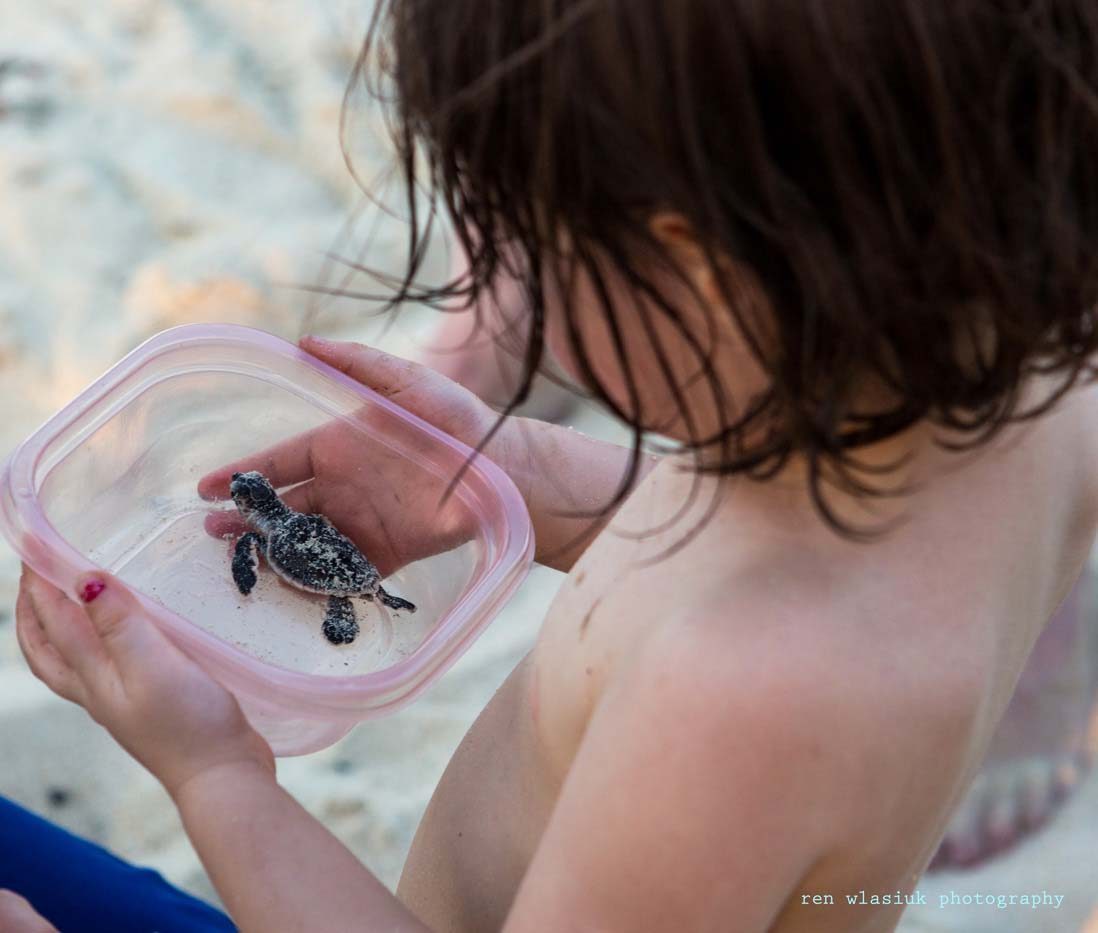
As hundreds of turtles return to Qatar’s northeastern shores to bury their eggs, marine researchers here have recommended closing the popular Fuwairat beach year-round to protect the endangered Hawksbill population.
For the past eight years, the beach has been temporarily closed for approximately four months between April and July during the turtles’ nesting and hatching season, Qatar University researcher Shafeeq Hamza told Doha News.
Keeping the public away, he said, has made a huge difference. Hawksbill turtles are very particular about where they lay their eggs, often heading to the exact same spot that they were born, or have previously nested.
Noise and debris caused by human activities such as camping and beach fires can easily throw them off, said Hamza, who works at QU’s Environmental Studies Center.
“They turn away. And after so many times, they’ll give up,” he said.
Turtle hatching
In recent years, conservationists with QU – with support from the Ministry of Environment (MoE) and funding from Qatar Petroleum – have helped to facilitate turtle breeding at Fuwairat, transferring eggs to secure new nests when needed.

Their activities, as well as the temporary fencing, are raising awareness about the Hawksbill turtles’ precarious existence and reducing incidents of egg poaching, Hamza said.
That program has been “quite effective,” with between 17 and 55 nests created each year between 2009-14. So far this year, researchers have found 15 nests, but expect that number to increase as more turtles come ashore.
Hamza explained that the typical adult female Hawksbill turtle reproduces every three to four years, which creates annual fluctuations in the number of nests.
Calling for closure
QU researchers formally recommended last year that the Ministry of Environment permanently fence off the beach. Hamza said the proposal was positively greeted, but said there are currently no signs of its imminent implementation.

When visitors drive and barbecue on the beach, the sand is compacted and robbed of oxygen. That creates hard, unfamiliar ridges in the sand that turtles have difficulty negotiating and creating a less-than-ideal nesting environment.
Hamza said banning vehicles and camping would “rejuvenate” the sand to create better conditions for nesting. It would become more porous, allowing for optimum moisture and oxygen levels.
The ban would also benefit the coastal vegetation that help prevent erosion and protect the mangroves in the area, he added.
Tourist attraction
Along with front-line conservation efforts, local researchers have also been tagging and tracking turtles as they migrate. Ali Jassim al-Kuwari, the Ministry of Environment coordinator responsible for the marine turtle project, said most don’t leave the Gulf and travel between Qatar, Bahrain, Iran and Abu Dhabi.
He said that in recent years, “huge numbers of tourists” have come to the beach specifically to see the turtles. This necessitated the need for new rules.

While the beach is completely closed during the nesting season, security staff will escort some visitors during the later hatching period.
Al-Kuwari said that while turtle population statistics in the Gulf are hard to come by, it’s clear that the population still faces challenges even as egg poaching and hunting decline.
He said many young turtles die after being exposed to pollution in the water, while others are unintentionally caught up in fishing nets.
While these remain serious problems, Al-Kuwari said residents can do their part with a simple step.
“Keep away from (Fuwairat) beach,” he said. “There are many nests … (that an) SUV, ATV or fire can destroy.”
Thoughts?







